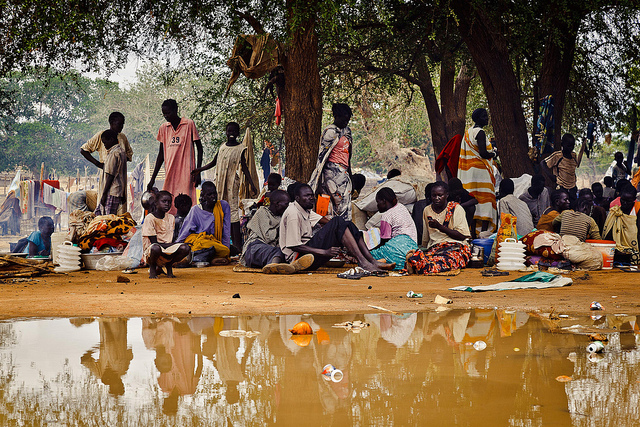
AGOK, South Sudan – Just over a year after Sudan government forces invaded the disputed border area of Abyei, the Enough Project has confirmed through several sources that Khartoum has pulled out the remaining Sudan Armed Forces, or SAF, from the region. The government of Sudan has, however, left in place an unconfirmed number of Sudan government police, which actors on the ground suspect may, in fact, be SAF personnel in police uniform.
For the past year, the Khartoum government has consistently refused to withdraw its forces from Abyei, in contravention of a number of agreements aimed at stabilizing the region since the May 2011 Sudan government invasion, which saw widespread destruction of civilian property and displacement. Until Tuesday, the Sudan government had maintained a 300-strong SAF presence in Abyei town as a symbol of Khartoum’s continued control of the region. The presence of SAF deterred the return of the over 100,000 Abyei residents, mostly Ngok Dinka, who remain displaced, and was an obstacle to dialogue between Juba and Khartoum on the final status of the disputed region.
On the ground in Abyei, actors appeared positive about the SAF withdrawal. But a level of skepticism lingers, due to the alleged 100 to 200 Sudan government police that remain in the region. Achuil Akol, the minister of finance for the Abyei administration, which Khartoum disbanded in the wake of the May 2011 attack, called the move a “partial withdrawal.” SAF tanks and heavy artillery have been withdrawn from the Abyei area, according to Akol.
Khartoum’s decision to withdraw SAF follows on U.N. Security Council Resolution 2046, which threatened both the Sudanese and South Sudanese governments with sanctions should either party fail to comply with its directives. One directive was the unconditional withdrawal of all Sudanese and South Sudanese forces from Abyei. Shortly following the issuance of the resolution, the South Sudan government pulled its police forces out of the area. Notably, the continued presence of Sudanese police forces in Abyei would contravene Resolution 2046.
Sudan and South Sudan negotiators are currently meeting in Addis Ababa in an attempt to defuse the tensions that brought the two sides to direct confrontation in late March and April of this year. The timing of the withdrawal may create more political space between the two sides for some progress on the many divisive issues that remain on the table.
Photo: Displaced Abyei residents fled south during the SAF invasion in May 2011. Many lived under trees because the host communities couldn't fully absorb the influx of people (Enough / Tim Freccia)

